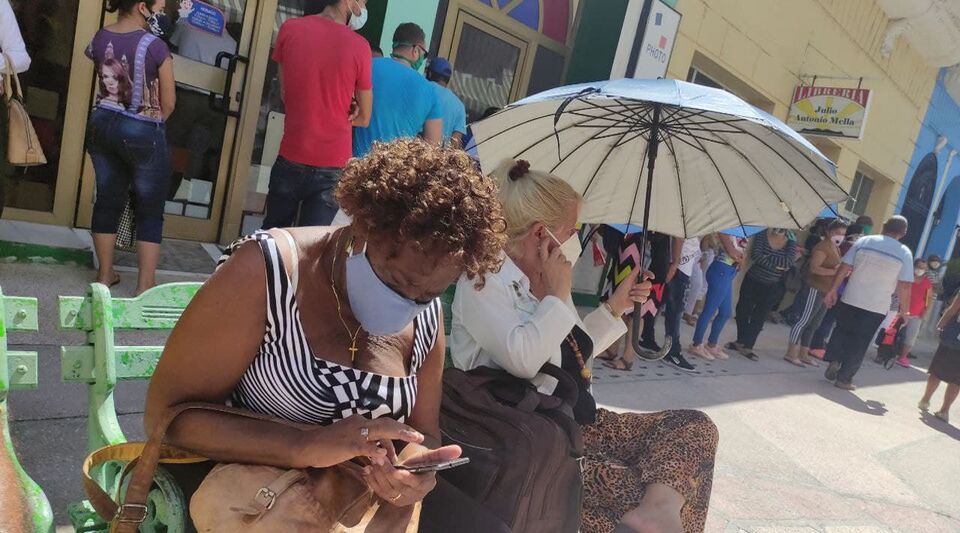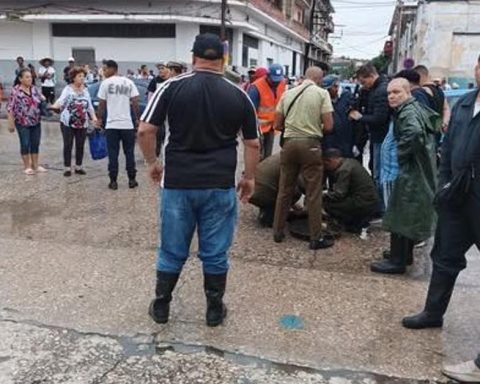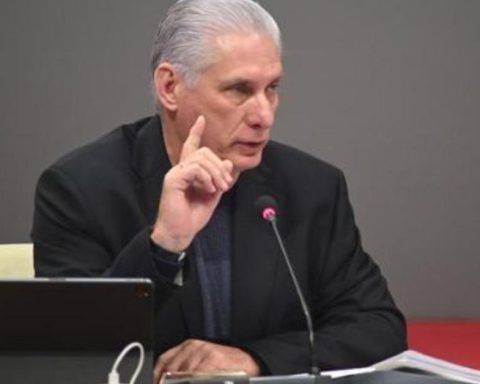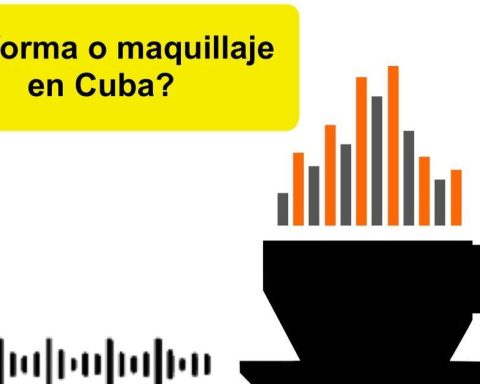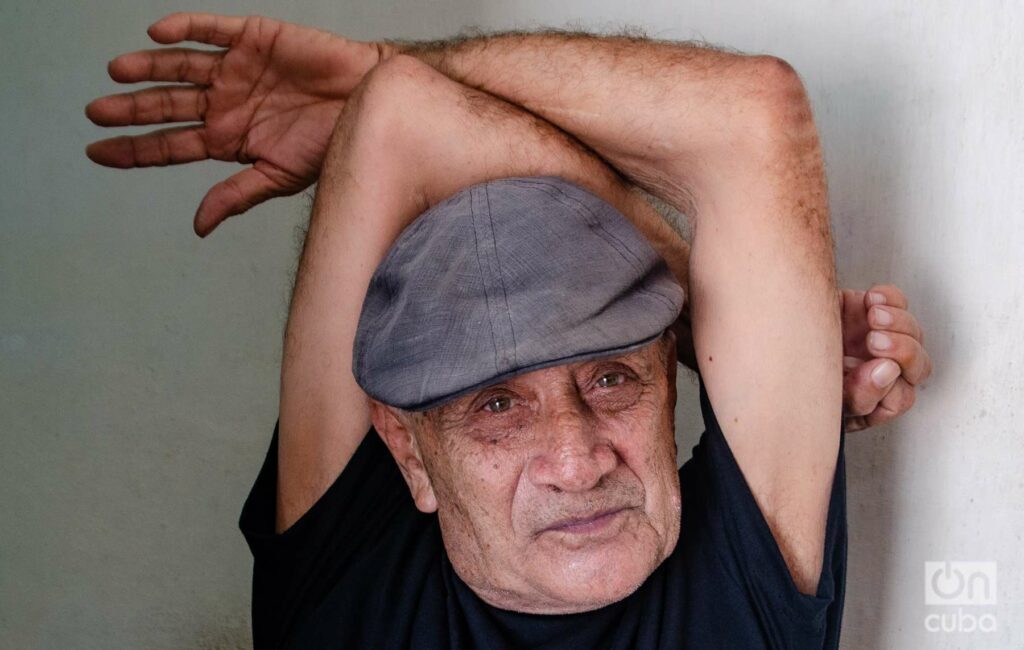Yanara called her best friend and told her in code: “My child is sick. Can you bring me a thermometer?” The phrase was just a ruse so that her old college classmate would visit her and then be able to tell what she had locked between her chest and back. Two days before, she had been summoned to a police station in El Vedado, in Havana.
“At first, when I received the summons, I thought it had something to do with my business because I am self-employed and I have a small table where I sell various products,” he told her. “But when they took me to a small room in the station, I realized that it had to do with State Security. There were three plainclothes policemen, all very young.”
Within those four walls, Yanara found out that the political police had been monitoring her Facebook account. “They had pages and pages of everything that I had shared or written on my wall, at least in the last year,” she said. “They began to question me why I used that path to criticize the government if there were mechanisms such as Popular Power and accountability meetings.”
After more than an hour of recriminations and threats for her writings, Yanara left the police unit with a fine of 3,000 Cuban pesos that she says she is willing to pay. “I think it is unfair, but I am very afraid because I have a small child, a business to take care of and a mother who only has me to support her,” she warned her friend.
The content that cost him an interrogation and a penalty of 3,000 pesos is made up of memes, some of which ridicule the figure of Miguel Díaz-Canel
The Police justified the punishment based on what has been regulated since July 2019 in the legislation “on the computerization of society in Cuba”, Decree Law 370, known as the “scourge law”. A regulation that aims to “elevate technological sovereignty for the benefit of society, the economy, security and national defense” and “counteract cybernetic aggressions.”
Among the crimes that Yanara allegedly incurred is “disseminating, through public data transmission networks, information contrary to social interest, morality, good customs and the integrity of people”, which has been compared, for the virtual world, with the crime of “pre-criminal dangerousness”, a legal figure that has been widely applied against opponents and dissidents.
The content that cost him an interrogation and a 3,000-peso penalty is made up of memes, some of which ridicule the figure of Miguel Díaz-Canel, comments about the long lines to buy food and criticism of the deterioration of Havana. “Nothing that people on the street don’t comment on, but they told me that I shouldn’t post that kind of thing on the internet.”
The habanera, born in the mid-80s, prefers to keep everything that happened under the strictest secrecy. “If this happened to me who only published memes and funny things from time to time, I imagine that there are many people who also paid this fine and did not say a peep.” At the same station where she went for the interrogation “there were at least three young boys waiting with the same summons.”
Since Decree Law 370 came into force, there have been many complaints that have circulated about the imposition of fines for posting certain content on social networks, but most of those who report these reprisals are activists, opponents or independent journalists. An unknown number of citizens who have been punished in the same way choose to remain silent.
“I made my Facebook account private and deleted some of the posts,” Yanara admits. “I don’t want problems and they made it clear to me that they were going to continue monitoring everything I wrote, to whom I gave a like or that I shared on my wall. You can’t be on social media like that, it’s like being on the street and having a police patrol following you.”
In August 2021, Decree-Law 35 came into force, which penalizes those who give voice to false news in Cuba, disseminate it, publish offensive messages or defamation that harm “the prestige of the country.”
Cristian, a young man from Camagüey who is preparing to enter university this year, went further. “I closed my accounts on Twitter and Facebook after I received a verbal summons supposedly from the director of my high school, but when I entered his office, two State Security officers were waiting for me.”
The teenager was also questioned about the signs of support he gave the protesters on July 11, 2021 on the internet and for “sharing mercenary content.” The political policemen threatened him with applying the scourge law and they warned him that admission to the university was an honor bestowed only on revolutionaries. Until that day, his Facebook account arrived. Only his family knew of that meeting.
“I don’t know who in my classroom has also gone through the same thing and now when I walk down the street I wonder if other people have experienced something like this and they haven’t said anything either,” reflects Cristian. “I have seen friends suddenly disappear from social networks and I thought they were involved in some project but after that questioning I have come to believe that they also received a subpoena for what they published.”
Decree-Law 370 is not the only regulation that has tried to curb citizen criticism on the Internet. In August 2021, Decree-Law 35 came into force, which penalizes those who give voice to false news in Cuba, disseminate it, publish offensive messages or defamation that harm “the prestige of the country” and “ethical and social damages or incidents of aggression” in social networks.
The regulations include a long list of cybersecurity incidents that range from computer attacks or physical damage to telecommunications systems to the access and dissemination of child pornographic content, which only deserve a medium or high level of danger. On the other hand, the category of “social subversion”, described as actions intended to disturb public order, is considered very high risk.
________________________
Collaborate with our work:
The team of 14ymedio He is committed to doing serious journalism that reflects the reality of deep Cuba. Thank you for accompanying us on this long road. We invite you to continue supporting us, but this time making you a member of our newspaper. Together we can continue transforming journalism in Cuba.
